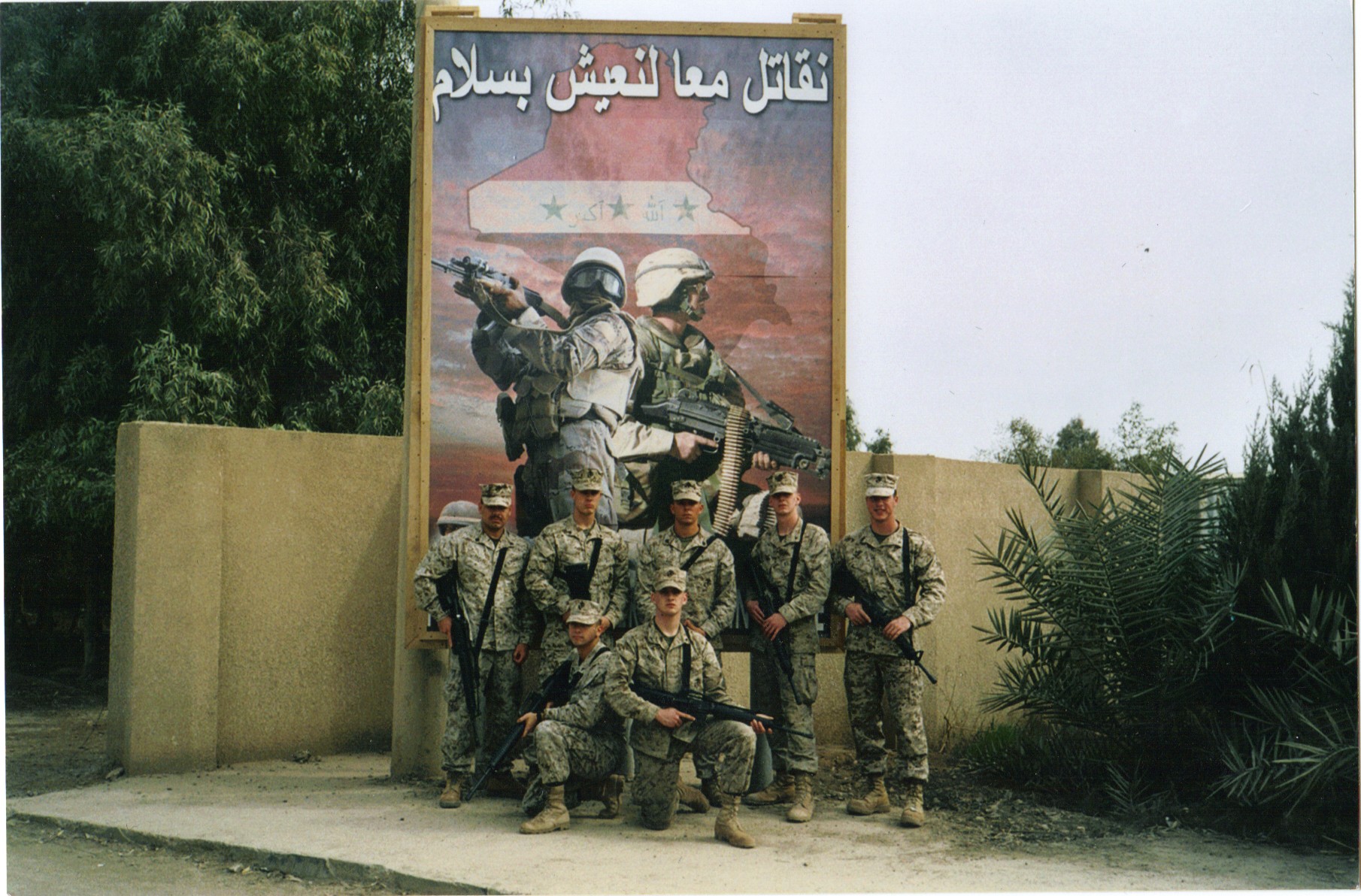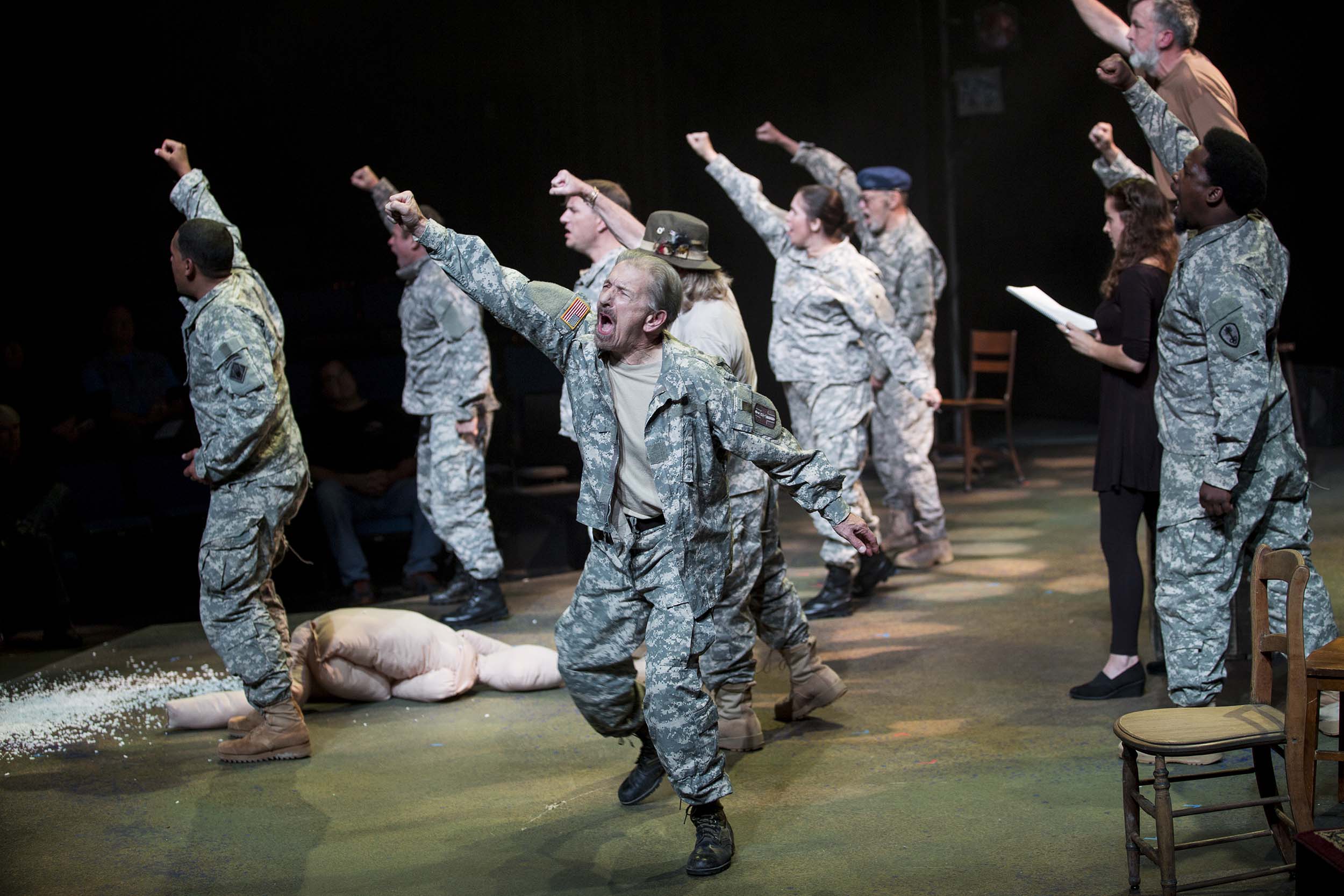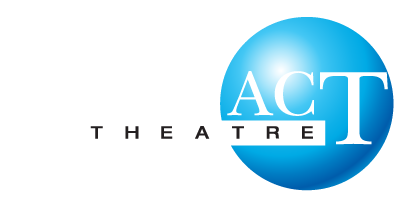Our Production Partner
By David Cecsarini, Producing Artistic Director

Mark Ard is a natural-born storyteller. He’s a big, boisterous man with a ready smile and an internal engine running constantly, just above idle. When asked a question, his response can be quick, sure and full-throated, cuss words and all. Or, he’ll silently run through his brain’s file cabinet of experiences, searching for the right tale to tell. The narrative pours forth – descriptive, detailed, honest, impassioned and exactly on point. How lucky we were to meet Mark last year in preparation for our work on 9 CIRCLES.
To help us delve more deeply into the play, we had reached out to a unique, local arts organization called Feast of Crispian* (FoC). Its mission is dedicated to working with veterans of military service, with particular emphais on PTSD issues and re-integration. FoC continues to be an indispensable community partner, helping us understand circumstances and issues in Bill Cain’s play from a veteran’s perspective. Mark Ard is the Development Director for FoC and also a Marine veteran.
One year later, in Zoom mode, 9 CIRCLES director and cast sat down with Mark to hear his thoughts on the play. First, we asked about his background.
“I didn’t have enough years in to make Staff Sergeant. But being a Sergeant of Marines was the best job of my life.”
Mark was in the Marines for eight years, with overseas deployment in Fallujah, Iraq in 2004, during Operation Phantom Fury. He moved up quickly through the enlisted ranks to become Sergeant, a hands-on leader, mentor, disciplinarian, teacher and counselor of his squad of about a dozen soldiers.
So what does he think of the play?
“I’m so glad you guys are getting back to this one. It brings up a conversation we just don’t have. It asks the tough question, ‘Why are we fighting?’ The way most people deal with veterans is to say ‘Thank you for your service’ or slap a yellow ribbon on the bumper and then move on with their busy lives. But if more Americans really knew WTF was going on [in war], they’d be more inclined to ask questions and challenge the rosy pictures the military and the media put out.”
In our play, a young man of questionable suitability as a soldier is recruited to serve in the Army because the recruiter had a quota to meet. I asked Mark about our all-volunteer armed forces, a system that was instituted in 1973 at the tail end of the Vietnam War.
“I believe it was a Greek general and philosopher, Thucydides, who said, ‘A society that separates its scholars from its warriors will have its thinking done by cowards and its fighting done by fools.’ That’s nothing against warriors or scholars. I just think that if a larger cross-section of citizens were involved in the military, it might bring pressure to bear on decision- makers to make them more accountable.”
At one point, the troubled soldier in 9 CIRCLES seeks help from an Army psychiatrist. How is that viewed in the military?
“You just don’t do it. There’s a culture of hyper-masculinity throughout the military. I mean, here’s a bunch of young guys, all hyped up from basic training indoctrination, dressed up like f***ing Rambo in Kevlar and carbines, running around in Hummers and armored personnel carriers topped with machine guns. You believe you’re indestructible. Asking for help blows your cover in the eyes of your squadmates – and for you, too. Even though privately you might be feeling the need to reach out, it’s a line in the sand that few soldiers cross.”

Are there consequences to that sort of cultural mindset?
“Oh, yeah, for sure, and that’s sort of the whole point of FoC. Even in the best circumstances, soldiers who come home from a battle zone have a tough time relating to friends and family. You’re really different from when you left, both psychologically and physiologically. You’ve been in this hyper- vigilant, testosterone pumping survival mode for months and it’s hard to come down from that. It’s hard to share thoughts and feelings; it’s hard to trust those who haven’t seen what you’ve seen, done what you’ve done. And sometimes the effects of trauma go much deeper which can cause veterans to turn to self-abuse, substance abuse or other destructive behaviors in their attempts to cope.”
What’s the connection between FoC and theatre, particularly Shakespeare?
“Oh man, we performed FoC’s original play, AND COMES SAFE HOME, two years ago at the country’s first National Veterans Theater Festival here in Milwaukee. The play combines our stories with Shakespearean pieces, which amplifies our experiences and brings our audience closer to them. Through the process, our trauma is shared and our feelings validated, but we’ve still got the Shakespeare ‘filter’ to help keep us emotionally safe. I had never felt anything like that feeling of love and support when the audience gave us a rousing standing ovation at the end. I’m a real believer in the power of theatre. I can’t wait to see what you guys do with 9 CIRCLES.”
Given Mark’s penchant for storytelling, it seemed only a matter of time before he ended up in the theatre. We thank Mark for advancing the important work of FoC, and we greatly appreciate his enthusiasm for and interest in our 9 CIRCLES project.
*FoC takes its name from Shakespeare’s HENRY V, mentioned on the day that the King’s small army, “we few, we happy few, we band of brothers,” will face the much larger French forces at the Battle of Agincourt.
Tickets for 9 CIRCLES are now on sale at https://nextact.org/shows/9-circles/?tickets. All active service members and veterans are offered $5 tickets to any performance of 9 CIRCLES. Use the code MILVET5 at checkout to redeem this offer. Discount does not include service or processing fees.
